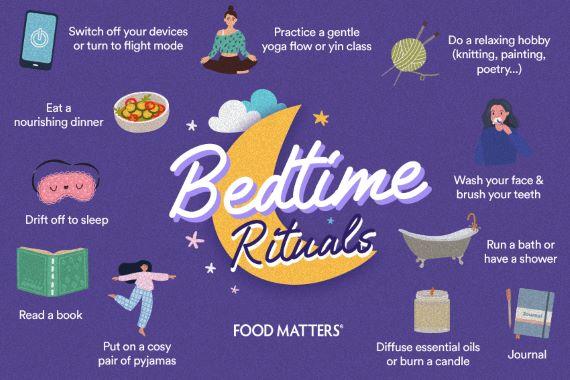In the fast-paced world we inhabit, where the relentless demands of work, social obligations, and digital distractions often overshadow the fundamentals of well-being, the importance of rest and recovery has never been clearer. Sleep, a seemingly simple biological necessity, is often relegated to the margins of our busy lives, viewed as a luxury rather than a pillar of health. Yet, emerging research consistently highlights the profound impact of proper rest on not just our physical health, but also our mental resilience and emotional balance. This article delves into the intricate dance between sleep and recovery, exploring how unlocking these essential elements can enhance our overall health and vitality. from the mysteries of REM cycles to the rejuvenating power of rest,join us on a journey to uncover the transformative potential of sleep,reminding us that sometimes,the key to thriving lies not in doing more,but in resting better.
the Science Behind Sleep: Understanding Its Vital Role in Health
Sleep is a complex biological process that serves multiple essential functions, significantly contributing to our overall health and well-being. During sleep, the body engages in vital activities such as tissue repair, muscle growth, and hormone regulation. These processes occur predominantly during deep sleep stages, where the brain releases growth hormones, supporting cell regeneration and recovery. The importance of quality sleep cannot be overstated; inadequate sleep can lead to a cascade of negative effects not only on physical health but also on mental clarity, mood stability, and cognitive performance.
Several factors influence our sleep quality, including stress, surroundings, and lifestyle choices.Understanding these factors can empower individuals to optimize their sleep hygiene for better health outcomes. Key practices to promote healthy sleep include:
- Maintaining a consistent sleep schedule: Going to bed and waking up simultaneously occurring daily can strengthen the body’s internal clock.
- Creating a cozy sleep environment: Ensuring a cool, dark, and quiet room can enhance sleep quality.
- Limiting screen time before bed: Reducing exposure to blue light can improve melatonin production and facilitate restful sleep.
- Practicing relaxation techniques: Activities such as meditation, deep breathing, or gentle yoga can reduce anxiety and prepare the body for sleep.

The Art of Winding Down: Effective Rituals for Better Sleep quality
In our fast-paced lives,allowing ourselves to unwind can feel like a luxury. Yet, integrating simple rituals into your evening routine can significantly elevate your sleep quality. Begin by creating a serene environment in which your body and mind can relax. Dim the lights, as softer lighting prompts your brain to recognize that it’s time to wind down.Consider incorporating calming scents; essential oils such as lavender or chamomile can gently signal relaxation. Engaging in quiet activities like reading a book or journaling can also provide a peaceful transition from the hustle of the day. The key is consistency—making these rituals a part of your regular nighttime routine will condition your body to recognize when it’s time for rest.
Moreover, it’s essential to disconnect from screens before bedtime, as the blue light emitted from electronic devices can interfere with your natural sleep cycle. Set a digital curfew for at least an hour before sleep, allowing your mind to drift into a calmer state.Physical relaxation techniques, such as deep-breathing exercises or gentle stretching, can further enhance your journey to a restful night.To help you visualize your perfect winding down routine, here’s a simple overview:
| Ritual | timing | Benefits |
|---|---|---|
| Dim the lights | 30 minutes before bed | Promotes melatonin production |
| Use essential oils | 15 minutes before bed | Enhances relaxation |
| Digital detox | 1 hour before bed | Supports natural sleep cycle |
| Stretch or meditate | 20 minutes before bed | Reduces tension and promotes calm |

nourishing Recovery: How Nutrition Supports Sleep and Restorative Processes
Nutrition plays a pivotal role in enhancing our ability to rest and recuperate. Consuming a well-balanced diet rich in essential nutrients not only fuels the body but also supports critical physiological processes that promote good sleep. Foods abundant in magnesium, tryptophan, and omega-3 fatty acids are notably beneficial in creating a conducive environment for relaxation and improved sleep quality. Such as, incorporating leafy greens, nuts, seeds, fatty fish, and whole grains into your meals can significantly encourage the body’s natural rhythms, ensuring deeper sleep cycles that facilitate healing and rejuvenation.
Furthermore, the timing of our meals can also affect sleep patterns. consuming a light dinner and allowing sufficient time for digestion before bed can positively influence sleep onset. It’s beneficial to include items such as cherries, which are natural sources of melatonin, in your evening snack. A diverse nutrient profile not only aids in recovery processes but also enhances mood and reduces anxiety levels, creating a holistic approach to wellness. Below is a simple table showcasing some key foods that promote both sleep and recovery:
| Food | Main Benefit | Best Time to Consume |
|---|---|---|
| Almonds | Rich in magnesium for muscle relaxation | Evening Snack |
| Salmon | Sourced omega-3s for brain health | Dinner |
| Oats | Contains melatonin | Breakfast or Evening Snack |
| Bananas | High in potassium and magnesium | Anytime snack |

Harnessing Daylight: The Impact of Natural Light on Sleep Patterns and Well-Being
Natural light plays a pivotal role in regulating our circadian rhythms, shaping our sleep patterns, and ultimately influencing our overall well-being. Exposure to sunlight during the day helps to synchronize our internal body clocks, leading to improved sleep quality at night. The warm hues of early morning sunlight can invigorate us, while the softer tones of twilight signal our bodies to prepare for rest. This interplay is instrumental in achieving a balanced cycle of activity and relaxation, whereby we can harness the benefits of daylight to enhance our daily vitality.
Adopting practices to maximize natural light exposure can promote a healthier lifestyle. Consider the following strategies to incorporate more daylight into your routine:
- Morning walks: Start your day with a brisk walk outdoors to soak in the early sun.
- Workplace design: Arrange your workspace near windows or use light-colored decor to reflect natural light.
- Outdoor breaks: Take regular breaks throughout your day to step outside for fresh air and sunlight.
Integrating these practices not only enhances our mood but also improves our quality of sleep, ultimately leading to better health outcomes. To illustrate the relationship between natural light,sleep,and well-being,refer to the table below:
| Aspect | Benefit |
|---|---|
| Daylight Exposure | Boosts Vitamin D production |
| Sunlight & Mood | Enhances serotonin levels |
| Circadian Rhythm | Improves sleep patterns |
| Natural Light | Increases productivity and focus |
key Takeaways
As we conclude our exploration of the intricate dance between rest and repair,it’s clear that sleep and recovery are not simply passive states,but essential pillars of our overall health. In a world that frequently enough glorifies constant productivity, taking the time to engage in restorative practices can feel like an act of rebellion. Yet,science continually affirms what many of us intuitively know: our bodies thrive when given the opportunity to rejuvenate.
By embracing restful habits—whether through improving sleep hygiene, incorporating mindful breaks, or prioritizing recovery routines—we unlock a treasure trove of benefits that enhance not just our physical well-being but also our mental clarity and emotional resilience. The journey toward optimal health is not a sprint but a marathon; one where our moments of stillness hold the key to enduring strength and vitality.
So, let us not underestimate the power of a good night’s sleep or the magic woven into moments of quietude. Rather, let us honor these vital practices, fostering a culture that values rest as much as it does action. In doing so, we pave the way for a healthier future—not just for ourselves, but for generations to come. Embrace the art of rest,and watch as your life transforms from the inside out.





Leave a Reply